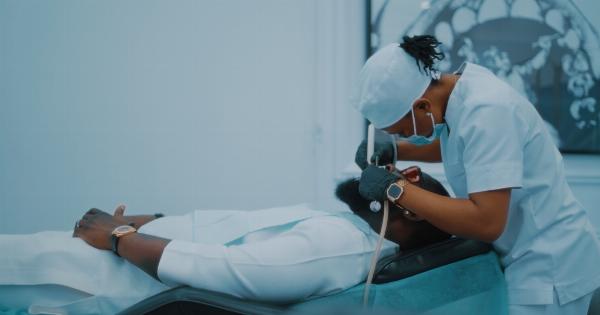Hiccups are involuntary contractions of the diaphragm that can sometimes be accompanied by a sudden closure of the vocal cords, leading to a “hic” sound.
They can happen at any time and for no apparent reason, but they are often linked to eating, drinking, or swallowing. Most people experience hiccups occasionally and they usually subside on their own, but sometimes hiccups can be a sign of an underlying medical condition.
What Causes Hiccups?
The exact cause of hiccups is unknown, but there are several factors that can trigger them. Some of the most common ones include:.
Eating or Drinking Too Fast
When you eat or drink too quickly, it can cause your stomach to become distended, which in turn can irritate the diaphragm and the nerves that control it. This can lead to a bout of hiccups.
Absorbing Air while Eating or Drinking
If you swallow air while you eat or drink, it can also cause hiccups. This can happen if you talk or laugh while you’re eating or drinking, use a straw, chew gum, or drink carbonated beverages.
HOT or COLD FOODS OR BEVERAGES
Consuming hot or cold foods or beverages can irritate the esophagus, which can lead to hiccups. This is because the nerves that control the diaphragm are located near the esophagus.
Consuming Spicy Foods
Spicy foods can also cause hiccups in some people. This is because they can irritate the lining of the stomach and cause it to become distended, which can trigger hiccups.
Ingesting Alcohol
Drinking alcohol can irritate the lining of the stomach and cause it to become distended, which can trigger hiccups.
Stress or Anxiety
Emotional stress or anxiety can cause a number of physical symptoms, including hiccups. This is because stress and anxiety can affect the normal functioning of the nerves that control the diaphragm.
When Should You Be Concerned About Hiccups?
Most hiccups go away on their own and are not a cause for concern.
However, if you experience hiccups that last for more than 48 hours, or if they are accompanied by other symptoms such as chest pain, difficulty breathing, or a fever, you should seek medical attention. These symptoms could be a sign of an underlying medical condition, such as gastroesophageal reflux disease (GERD), pneumonia, or a stroke.
How Can You Get Rid of Hiccups?
There are several home remedies that you can try to get rid of hiccups, including:.
DRINKING WATER
Drinking a glass of water quickly can disrupt the pattern of your diaphragm contractions and stop hiccups.
HOLDING YOUR BREATH
Take a deep breath and hold it for as long as you can. This can help to reset the normal breathing pattern.
BREATHING INTO A PAPER BAG
Breathing into a paper bag can help to increase the carbon dioxide levels in your blood, which can help to reduce hiccups.
GARGLING WITH WATER
Gargling with water can help to stimulate the vagus nerve, which can help to reduce hiccups.
PULLING ON YOUR TONGUE
Pulling on your tongue can stimulate the muscles and nerves in the throat, which can help to reduce hiccups.
Conclusion
In most cases, hiccups after eating are a common occurrence and nothing to worry about. They can be triggered by a variety of factors, including eating or drinking too quickly, ingesting air, consuming hot or spicy foods, and emotional stress.
However, if your hiccups last for more than 48 hours or are accompanied by other symptoms, it’s important to seek medical attention to rule out any underlying medical conditions.































